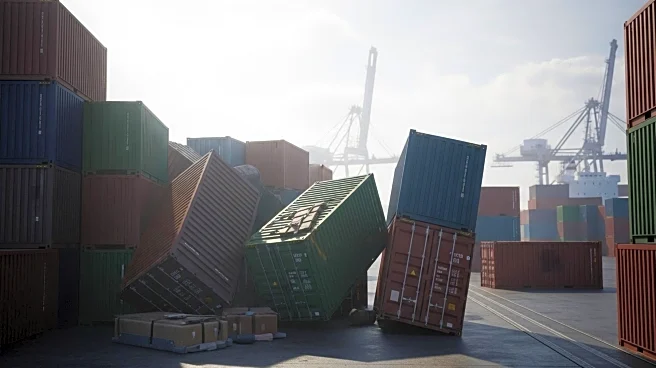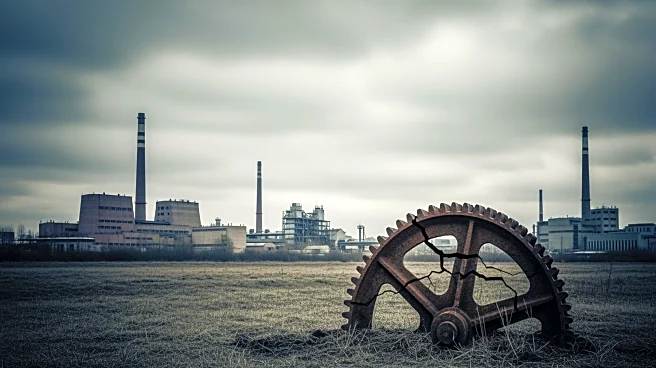What is the story about?
What's Happening?
On Tuesday morning, over 60 shipping containers fell off a cargo ship named the Mississippi at the Port of Long Beach, California. The incident occurred shortly before 9 a.m., with containers tumbling overboard and floating in the water. According to Art Marroquin, a spokesperson for the Port of Long Beach, no injuries have been reported. The U.S. Coast Guard confirmed that approximately 67 containers were in the water. The Port of Long Beach, located about 20 miles south of Los Angeles, is one of the busiest seaports in the United States, handling 40% of all shipping containers in the country. Some containers reportedly fell onto the STAX 2, an anti-pollution vessel attached to the Mississippi that captures emissions. The Pier G container terminal temporarily halted operations to secure the containers. The Mississippi, sailing under the flag of Portugal, arrived in Long Beach after departing from the Yantian port in Shenzhen, China on August 26.
Why It's Important?
The spill at the Port of Long Beach highlights the challenges faced by major U.S. ports in managing large volumes of cargo. As one of the busiest ports in the nation, disruptions at Long Beach can have significant implications for supply chains and logistics across the country. The incident underscores the importance of safety and operational protocols in preventing such occurrences, which can lead to delays and increased costs for businesses relying on timely shipments. Additionally, the environmental impact of such spills, particularly if containers contain hazardous materials, can be substantial, necessitating swift action to mitigate potential pollution. The event may prompt reviews of shipping practices and regulations to enhance safety measures and prevent future incidents.
What's Next?
Authorities at the Port of Long Beach are working to secure the fallen containers and resume normal operations at the Pier G terminal. The incident may lead to investigations into the cause of the spill and whether any regulatory or procedural changes are needed to prevent similar occurrences. Stakeholders, including shipping companies and environmental groups, may push for enhanced safety measures and stricter oversight of cargo handling practices. The U.S. Coast Guard and port officials will likely assess the environmental impact and take necessary actions to address any pollution concerns. The event could also influence discussions on infrastructure investments to improve port facilities and handling capabilities.














